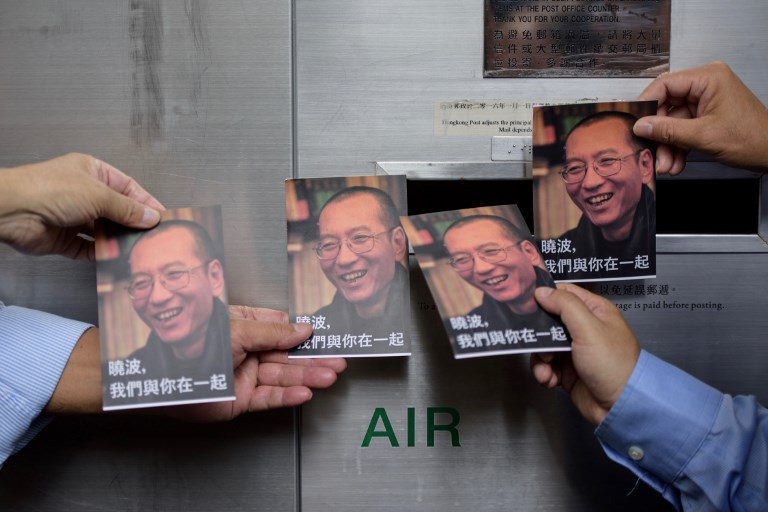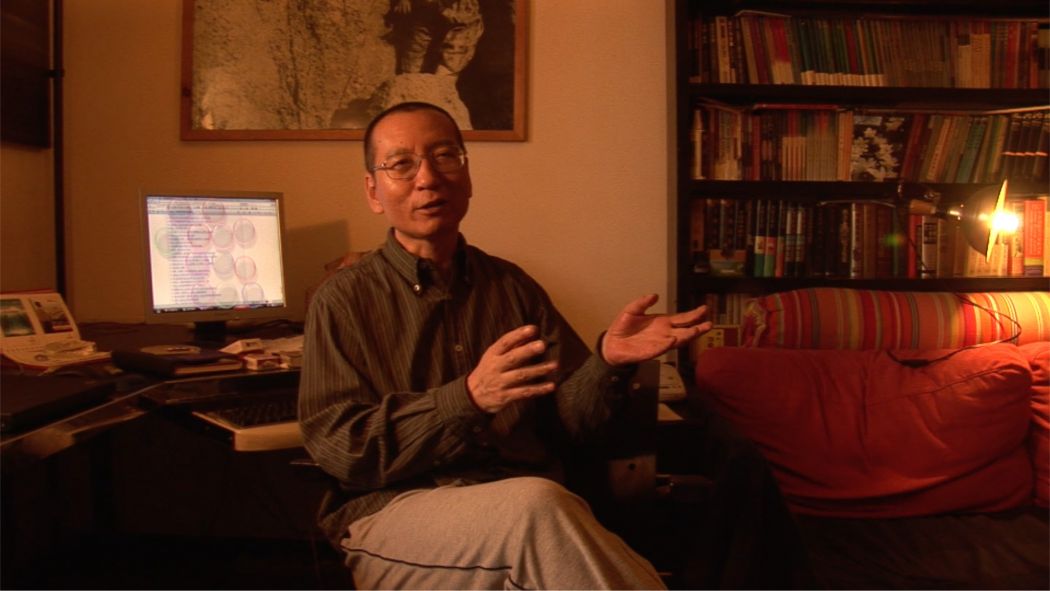“The living should really shut their mouths and listen to the graves speak.” – Liu Xiaobo (2012), June 4th Elegies
I came upon the case of Liu Xiaobo back in 2010, and, was intrigued by the irony, gifted to the Western media by the CCP, in the famous empty chair photos at the Nobel award ceremony in Oslo. I started collecting everything the Chinese media published about Liu – which was really very little.
Having lived and worked in China since 1997, I had become intrigued by the way the government used its media – not to inform, but to somehow create paradoxical versions of reality. As a linguist majoring in the critical analysis of political discourse (CDA), my intention was to use a grammatical system to analyse what sort of rhetoric was used to criminalise Liu. CDA is an emancipatory discipline. It looks at how language is manipulated by those in power to perpetuate their own ideologies and elite interests.

Around the world, Liu’s insistence on non-violence in the struggle for democracy led to comparisons with M.L.King, Nelson Mandela and Gandhi. His “crime”, in fact, was not a call for revolution, but a written plea for democracy. He was jailed for his ideas and his words under the law of “endangering national security”.
Liu was deeply committed to seeing China live up to its own Constitution, specifically Article 35, which states that citizens should possess the right to “freedom of speech, of the press, of assembly, of association, of procession and of demonstration”.

In the 1980s, Liu was a professor of literature at Beijing Normal University where he obtained his PhD. He was not a political activist in his earlier days, but rather chose the path of an independent intellectual who refused to align with political sponsors for either gain or protection – and was critical of colleagues who did. Particularly those of the literati who postured as dissenters, but in fact, avoided confrontation with power. His outspoken views toward those who were a little too comfortable with the state, caused him to be “the black horse” among contemporary Chinese literati.
While at Columbia University in the U.S. in 1989, Liu heard about the occupation of Tiananmen and decided to return. He became immersed in the movement, but disapproved of certain student tactics such as “letting anti-democratic practices develop in a movement for democracy”. Seeing what was going on around him, he was moved by the students’ devotion and became convinced that he was witnessing the emergence of a new democratic-minded Chinese citizen.

Immediately after the evacuation of Tiananmen on June 4th, while riding his bicycle around at night looking for survivors, he was recognised and promptly arrested. Labelled this time a “black hand”, he was denounced, and imprisoned for twenty months at Beijing’s maximum-security Qincheng Prison. He was released in January of 1991, but imprisoned again from May 1995 to January 1996, and from October 1996 to October 1999. Because of his role in authoring Charter 08, he was sentenced to a fourth prison term in December 2009, which until his death yesterday, he had been serving in Jinzhou Prison in China’s northeastern Liaoning Province. He was due for release in 2020.
During the Tiananmen protests of 1989, Liu had been spiritually transformed by the movement. But at the same time, was haunted by what he had witnessed there. Each year since then, he eulogized the massacre in poetry. Inscribing the deleted Tiananmen narrative for posterity became a sacred duty. To this day, the story of what happened that night is altogether missing from China’s official history. Liu’s poems comprise the June 4th Elegies, which journalist Paul Batchelor calls a unique contribution to Chinese literature in that it is poetry blended with deep political convictions. He described it as possessing an aesthetic that has elevated defying government into a form of art, and as a struggle to make “an absent history present”.

At this point, it behoves us to breathe something of the essence of why Liu was imprisoned in the first place. Charter ‘08 was seen as extremely controversial document because it directly challenged the CCP’s powerbase.
Its 19 points are: ‘Amending the Constitution’, ‘Separation of power’, ‘Legislative democracy’, an ‘Independent judiciary’, ‘Public control of public servants’, the ‘Guarantee of human rights’, ‘Election of public officials’, ‘Abolition of hukou system’, ‘Freedom of association’, ‘Freedom of assembly’, ‘Freedom of expression’, ‘Freedom of religion’, ‘Civic education’, ‘Free markets and protection of private property, including privatizing state enterprises and land’, ‘Financial and tax reforms’, ‘Social security’, ‘Protection of the environment’, ‘a Federated republic’, and ‘Truth in reconciliation’. It is not surprising that it caused a reaction that eventually led to Liu’s imprisonment, and ultimately, his death.
In the elegies, he wrote:
“The souls of June 4th have been watching me from the sky, for 14 years. To me, a participant in the ’89 movement, that night and that dawn pierced by bullets and crushed by tanks, the memory of lightning-like bayonets have, to this day, been engraved in my memory.”
We can only hope that he has joined them there. Like the others who have gone before, Liu’s ideas remain – for they are not his, but belong to all men. His life will continue to provide a flame, a sort of beacon lighting the path ahead. His death is a reminder that the road to democracy is a long one. And now, as he asked, let us be silent and listen to one more grave speak.
